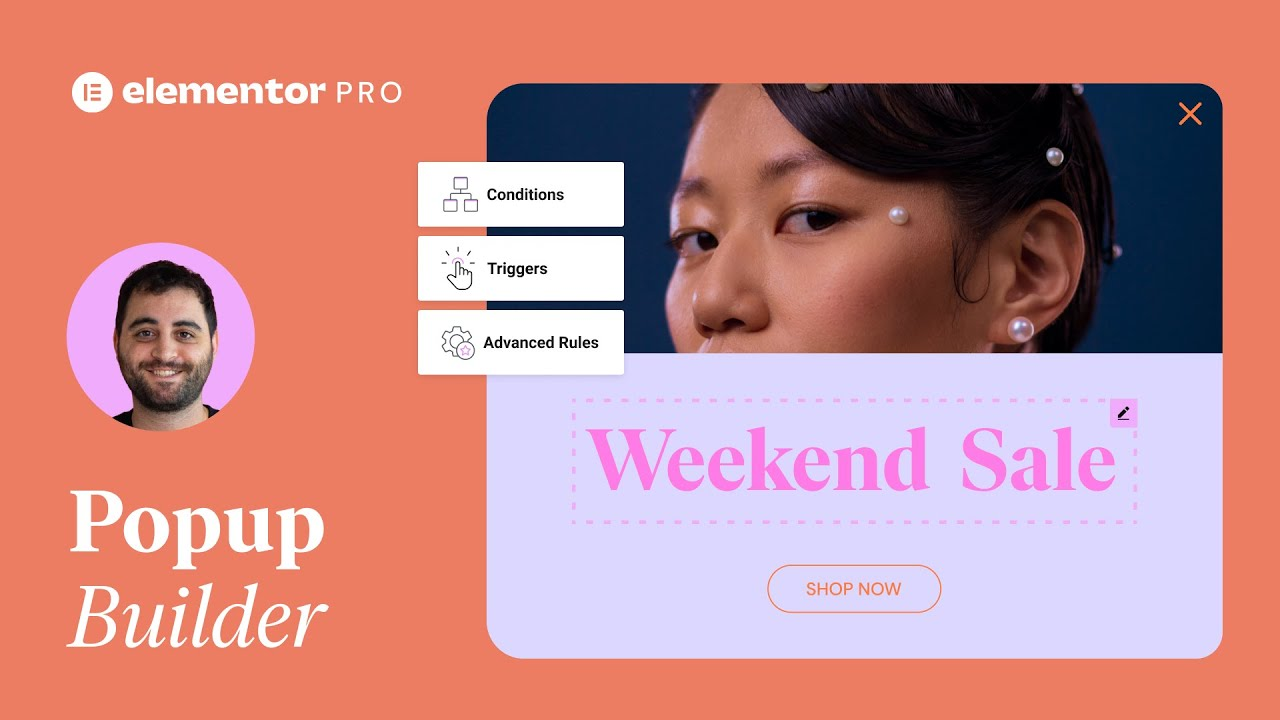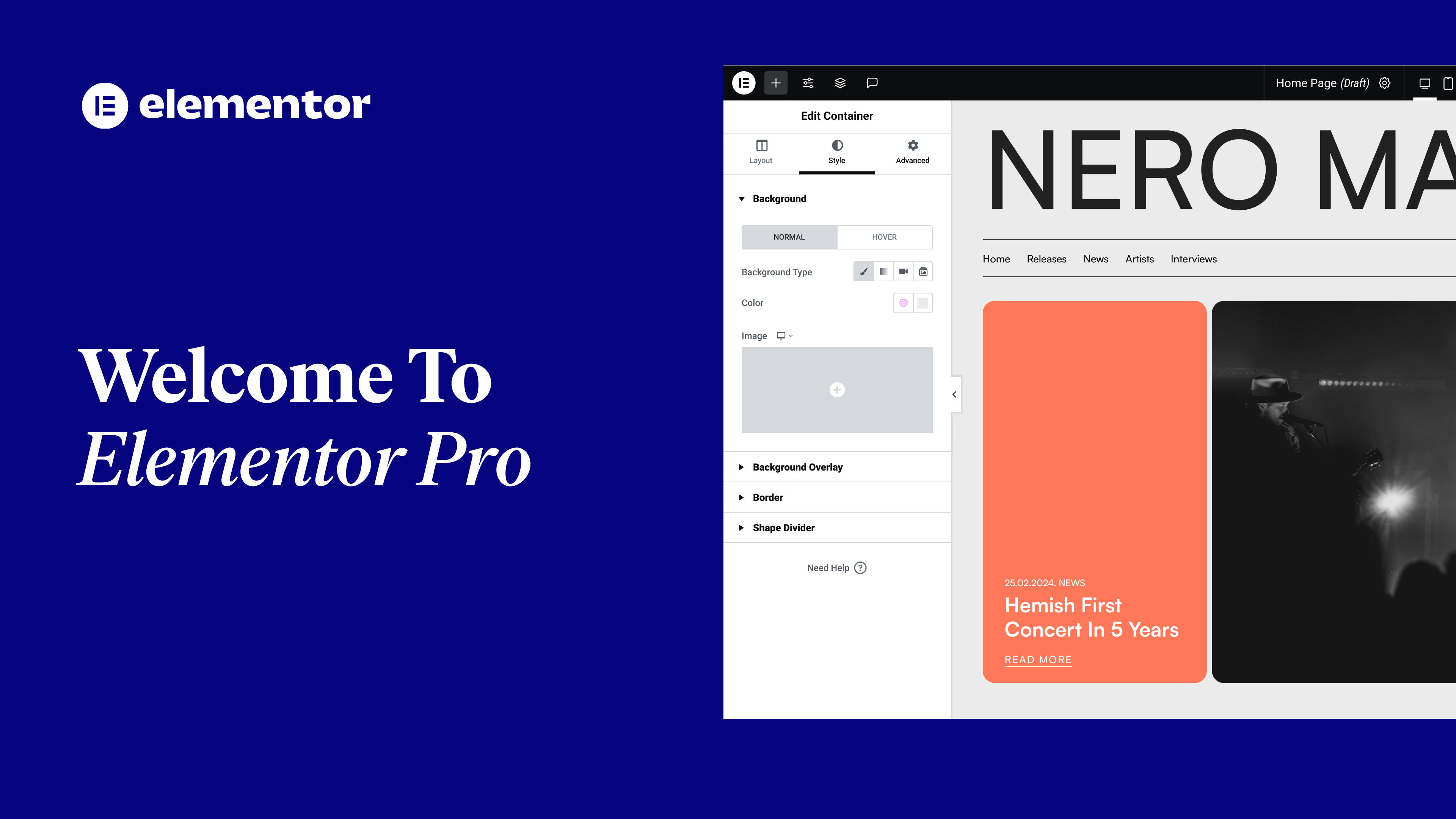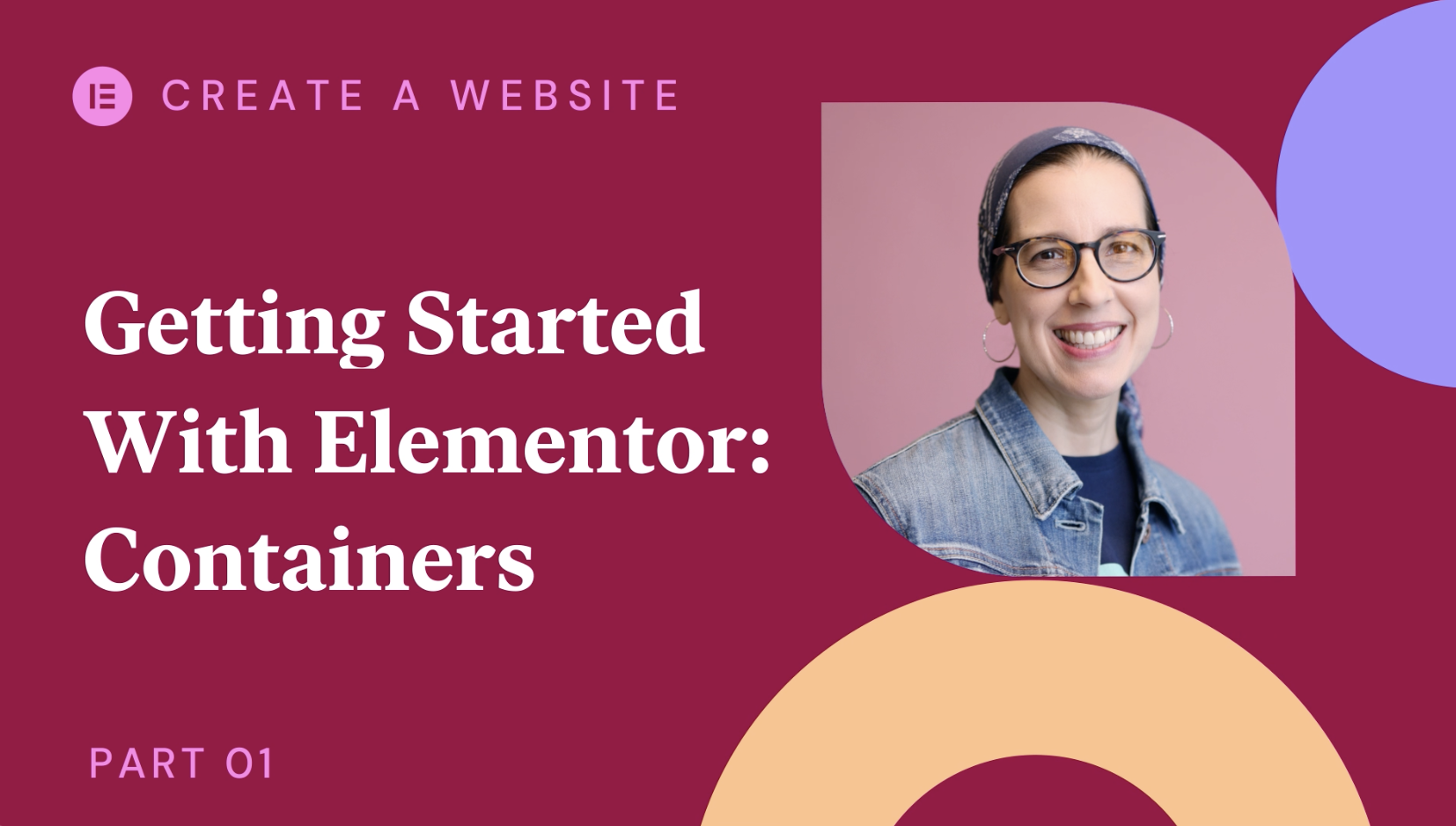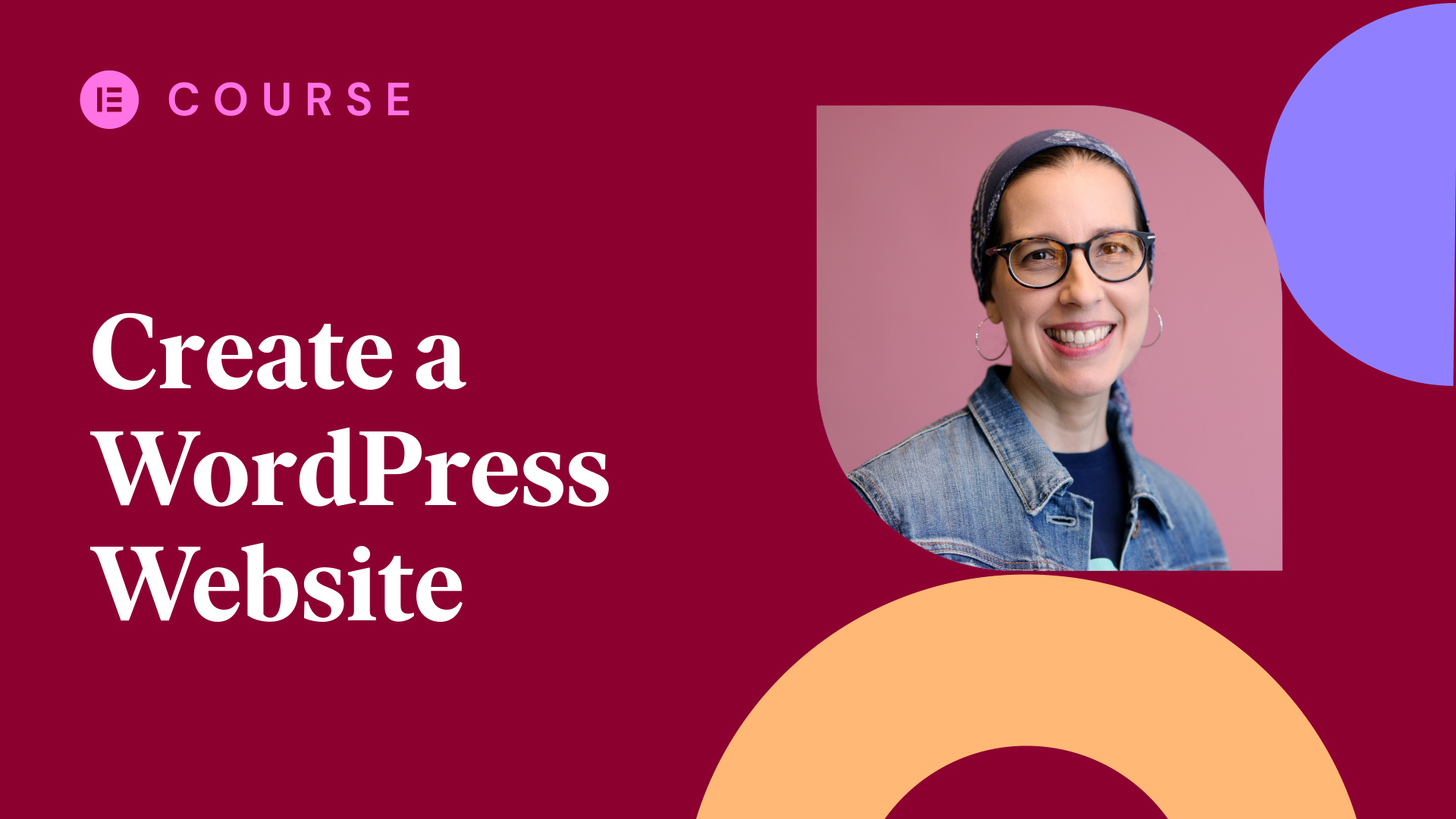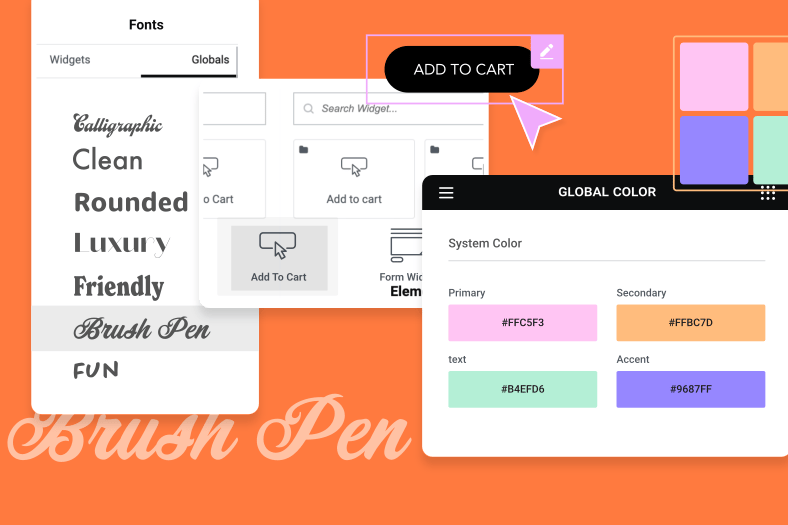Watch Elementor CMO Ben Pines talk to Neil Patel, one of the top online marketing experts in the world.
The interview includes some insights into digital marketing from Neil Patel, the Founder of CrazyEgg, QuickSprout, KissMetrics, Marketing School, and a host of many successful startups and businesses. Watch Neil and Ben as they discuss the ins and outs of running a successful online business.
– So, hi Elementor fans
I’m here with the
one and only Neil Patel.
Now, in case you don’t know Neil Patel
you must be living in an island somewhere
that has no internet.
Because he’s the founder of KISSmetrics,
Quick Sprout, neilpatel.com, Crazy Egg,
and, I mean, the list goes on and on.
Marketing school is the
latest thing, I think.
All of these businesses,
hugely successful.
So it’s a great privilege to
talk with you, Neil, today.
– Well thank you. Thank you.
Thank you for having me.
– So basically, I’ve known
your work long before I even
started working with Elementor.
I think it was 2009, 2008
when I first read your marketing articles
and they’ve had a great influence on me.
So I thought, how to
start this interview to
first of all, get as much
information for myself
and also for all the listeners.
So what intrigued me to begin with
was, like, you’re everywhere.
I mean, in video and podcasts
and all the businesses.
And I was wondering,
what are your favorite channels?
And like, why? What’s the reason?
– What do you mean favorite channels?
Like, for marketing?
– Yeah.
– It varies. I don’t think that
there is one better channel than another.
I think it varies by
what are you naturally good at,
or what do you prefer?
Some people, like Gary Vaynerchuk,
are better at video than he is
at content marketing.
I’m better at content marketing
than I am at video.
Some people like Tim Ferriss,
he’s better at, let’s say,
podcasting than maybe I am.
Right? So it’s like,
everyone has their own things
on what they’re good,
or what they’re not good at.
– Okay.
– That’s what they should focus on, right?
It ends up coming down to
doing what you’re best at
and then going from there.
– So like, your niche
that you’ve honed for the last,
a lot of years now,
is content marketing.
But that’s a big bucket,
so how do you stay on top of all the
changing technologies
and changing channels?
– Yeah, you keep reading.
You learn more. Do tests.
There’s no real other way.
You network. You talk to people.
– So, that brings me to another question.
Okay, you have a lot of start-ups
and you also do content,
so how do you balance between
those two things?
Like, managing and doing actual work
and doing more tutorial,
explaining things?
– So, you’re saying
how do I manage in creating
the content and my work?
– Yeah.
– My work is marketing.
So, for me it’s the same.
– Like, what I mean as an example is
your podcast, Marketing School,
It’s like every day you give away
all the secrets.
– Yeah, but we record it in batches
so we’ll record 20 in one day.
– That’s smart. That’s a good thing.
I will remember that.
– Yeah, that helps.
And then we usually do it over
two days in a row,
and we’ll crank out 40 in a weekend.
– Do these topics, these
a certain subject?
Or they’re just, like, varied
according to, you know, keyword research?
– No, just anything that we think
would be interesting.
– Recently, what do you think is now
emerging and interesting,
recent updates and changes on the web?
– The big thing that I think
a lot of businesses
aren’t focusing on, and it’s old,
but they still don’t, is branding.
I think it’s priceless.
And I’m waiting for a lot of
online businesses to focus on it.
Like, if you look at
Nike, they’re everywhere.
They’re everywhere because they know
that it helps them.
They’re not everywhere because
they’re like, “Oh, this TV
commercial’s making us more money.”
They believe if you continually just do
TV commercials, radio
ads, sponsor everything,
eventually everyone will see you,
and people will buy you product.
I think it’s priceless,
and it’s something that a lot of
people take for granted.
– And do you think,
is there a difference between
branding a brand like
Coca-Cola, or Nike, to self-branding?
– It’s very similar.
You have to provide value, create a story,
build an emotional connection.
Yeah, there’s not much difference
from what we’re seeing.
– I think, for me personally,
it’s also a very interesting topic
that our viewers also are
interested in everything
that has to do with self-branding
because a lot of them are freelancers.
They’re making websites,
and they want to get their name out.
Their brand. Their reputation and trust.
So what are points that
has worked for you,
that you think are maybe best practices?
– Sure, focus on one
marketing channel at a time.
It could be content marketing.
It could be podcasting.
It could be SEO.
You pick one.
Two, do it for a while.
Get good at it.
Three, then it’s time to
talk multiple channels.
Four, focus on branding
your company, or yourself,
as an authority.
You can do interviews,
you can do podcasts,
you can speak at conferences.
You can pick your poison.
But if you follow those,
after like a year or two,
you will see that your brand will grow.
– So, let me get it straight.
So you start off with a great focus,
and I agree, that’s a huge thing.
So like, let’s say you decided
every week you put out
two blog posts.
– Yeah.
– That are, like, long form blog posts.
So how do you,
okay, so that takes a chunk of your time.
So how do you escalate it later
to something that also…
– Well, as you grow, you can hire
people to help out.
But that’s why you start
off focusing on one.
– I saw a video that you made,
which also I really liked,
and I saw it, I think two years ago.
It was from a conference
about growth hacking.
– Yeah, I know.
– I don’t know the place,
but you mentioned
Dropbox and how they escalated.
That was a great video, first of all.
– Thank you.
– And, is your opinion of growth hacking
the same now, or has something changed?
And also can you explain a bit
what it is for our viewers
like, what it means?
– Yeah, it’s, you know
I think it is changing.
It’s evolving.
But growth hacking is
using all departments in
the organization to help
grow the business.
So it’s not just marketing.
It could be product. It could be sales.
It could be design. It
could be engineering.
And the key is to get creative
on how you grow.
It could be referral programs.
It could be SEO.
It could be, you know,
numerous strategies.
It could be affiliate programs.
It could be just focusing
on conversion optimization.
But the big thing about growth hacking
is most people aren’t focusing
on being super creative,
and that’s a great way
to grow, right?
And that’s what growth
hacking does so well,
it’s being super creative.
– Okay, but eventually,
what does it mean action wise?
What is the difference between
just doing a regular PPC campaign
and growth hacking, like
something that would scale?
– PPC can be part of growth hacking.
There is no difference there.
The big changes in growth hacking,
it’s about creativity.
It’s about modifying the whole product.
The organization working as one to grow,
instead of just saying,
“Hey, marketing, you just grab traffic,
and design, you just make it look pretty.”
It’s everyone having the same goal.
Design and marketing can combine and say,
“Hey, how do we get more visitors
to convert into customers?”
Engineering can help and say,
“Hey, let’s modify the on-boarding
flow of the product or service,
so that way it can be usable
and we can get more people to use it
versus bouncing away.”
– So like, if you get also,
if you have a support department,
you can use the questions that they get
to, like, leverage it
and maybe create tutorials
from it, et cetera.
– Exactly.
– Okay, cool. And like, what kind of
examples have you seen of
businesses that manage to,
that you personally had involvement in?
I know you had the cool project
of growing from zero to $100,000.
– Yeah, I don’t do too much consulting
so I don’t get involved in
too many projects, but like
if you look at a lot of
companies who’ve grown fast,
from Dropbox to Slack to Evernote, right?
They’re all leveraging a lot
of these tactics.
– One of the strategies that I think
was very big, I think two years ago,
was everybody was talking about,
“10x the content”
You know, 10x content.
But the problem is, like,
now a lot of people 10x
so you see a lot of articles
that are, you know,
a lot of graphics and screenshots.
So how do you continue to 10x
today when you get
such a competition?
– So, you do that
and that you make 10 times
of those content pieces.
(laughs)
– Okay.
– So, if it’s now longer
than 3,000 words with more images,
instead of writing one a day,
you write ten a day.
– And this you do with the
outsourcing, of course?
– Yeah, you can hire editors, outsource.
You can do whatever you want
to scale your business.
– So one of the things that I think
about growth hacking,
for us at least, is that
when we developed and marketed Elementor,
we went to the global market.
And I think this really helped,
because you have, you know,
there’s a lot less competition
in other countries than in the U.S.
I think a lot of new businesses
just focus on the top countries,
the U.S., U.K., and they
miss out on a lot of
business opportunities.
So have you seen
surprises in those fields?
I know you also have
focus on global marketing.
– Yeah. It’s, you know,
as a company, what you have
to worry about is,
it’s not about the details.
It’s not about global marketing.
It’s not about strategies.
It’s not about any of that.
What you need to figure out
is what are you good at,
and how can you just scale that.
And then later on, you can expand.
I think people think about
this stuff too much.
I think they’re trying too
many different tactics.
I think they’re worrying
about their competitors too much.
Instead of just focusing on
what they’re amazing at.
– So in that respect,
if you have a business,
I mean an existing business,
that they have their clients
that, I don’t know,
take their time and their tasks,
and they have a mediocre income
but they want to scale.
So I think it’s interesting to ask,
what do you recommend?
Like, what’s best practices for
leveraging an existing business
that is stalling?
– You know, well you have to
look at your funnel.
So look at where the drop off is
and why is it stalling,
and that’s the area you
should focus on first.
For example, if everyone’s
dropping off on your homepage
because they don’t understand
the product or service,
then you fix your homepage.
If everyone’s dropping off
on your checkout page
’cause they don’t like something there,
then figure out what’s wrong with
your checkout page so you can fix it.
You can survey people to
figure out what’s wrong,
you can look at analytics,
and then you can take the rest from there.
– Okay, that makes sense.
Also, how do you do the balance
between like, okay, you focus on,
this was a huge challenge for me,
like understanding how much,
how you split the pie between
the content you’re creating,
the outreach you’re doing,
and the PPC ads you’re doing?
How do you know the right balance?
– You don’t worry about the right balance.
You worry about what’s working,
and then whatever’s working,
you do more of it.
Whatever’s not working,
you stop doing that.
– Okay, like, adaptive, agile approach.
I like it.
So what’s your biggest,
it’s not easy to ask, but like
your biggest failure?
Like, you said, “I was wrong here.”
– I have a lot of them, but my biggest…
Well, forget what biggest failure
was because people can’t learn from that,
let’s talk about why I failed.
And one of the biggest reasons on
why I fail, and I have so many times,
is distractions. I don’t focus.
Focus on one thing, and do it right.
And you will grow.
– You know, we have a
saying in our company.
Like, by the book. Do it.
Don’t skip any steps.
– Yeah, we look at it as more like
instead of trying to do too many
businesses or trying to do too many
things to grow, just pick one and
then just be the best at it.
– Yeah, but when you
reach the success that,
I mean, I think you’re the…
It’s fair to say that you’re one
of the top marketers in the world today.
Like, easily top three.
So when you reach this success,
how do you, and I have to be modest,
our plug-in also is one
of the top in Orpris,
so how do you go to the next level?
How do you keep on challenging yourself?
– Self-motivation. There’s
nothing to challenge.
It’s the drive within you.
You either wanna do it,
or you won’t, right?
You don’t have to continue
to challenge yourself,
you’ll want to naturally
be better and progress.
If you’re not, then you should find
a different industry to be in.
– And what challenges you today?
– My challenge is growing and being
bigger than my competitors.
It’s very hard.
I’m trying to figure out how to be
It’s not easy.
– I saw that recently you’ve
done a lot of,
you’ve started doing video.
So can you tell a bit about,
I think it’s lately, I think it’s
the last year or something.
So can you explain a bit about
what are your impressions of this field,
because I think for us it was amazing.
– I love it.
I do videos to connect
more with my readers
and other people out there.
I love it.
I wanna do more and more videos.
– Yeah, like YouTube is a huge channel.
– Huge.
– Yeah. For us, that
was one of the biggest
leaps that we had in marketing.
When one of our videos became viral
and we got a lot of subscribers from it,
and it was just a 10 minute video
that didn’t take us too much to make.
And this leads me to another topic,
risk-taking in marketing.
So as marketers, we,
of course, have risks.
Like, when you create a campaign
or anything you do actually is a risk.
Can you share some of the risks
that you’ve recently
done or tried, you know?
– Yeah, I’ve tried
expanding internationally
when I don’t speak the language,
which is hard. It’s not easy.
I’ve tried doing things like
re-shifting products where you’re going
from paid to try to build a free version,
and cut off your revenue stream.
But yeah, I’m testing a lot of stuff
that is always tough decisions.
– And do you have, like, a focus now?
In your own, I mean because-
– I do. My focus is traffic generation.
That’s all I do every day.
I figure out how to get more traffic.
I do nothing else, I-
– Across channels?
– All channels, yes.
Free, paid, everything.
– Okay, and I want to ask you
a question that is related also
to our product.
You know, we have a page builder
that people seem to like,
and I wanted to know,
what are your thoughts on
page-building and landing pages,
and how they…
– Yeah, everyone should have landing pages
because you can end up optimizing
your conversions more by
sending people to specific pages.
And why would you pay
designers or developers to create them
when you can just use tools to
make them really fast?
It’s cheaper, quicker, and you’ll
find out what works.
And then if it works,
you can keep editing and testing
and changing things up.
– I want to ask you one
final question about,
a lot of our users are
freelance designers,
so if I am a freelance designer,
how would you recommend
starting off and…
I don’t know what I’m good at yet.
I know I’m good at designing.
How would you recommend I start
building my business right,
in terms of gaining conversions,
in terms of gaining my
audience and subscribers, et cetera.
– So you’re saying
how would you start off with building
your audience and
subscribers and following?
– Yeah.
– Focus on one channel.
You pick either videos,
podcasting, or content.
You start with there.
You increase your content production
in any of those channels,
and you wait six months to a year
and you’ll start building up a following.
Whatever content you create,
promote it on your social profiles.
Ask other people within your space
to promote it, and over time
you’ll build up an audience.
– You have one strategy that says
post every week, as much as you can,
and you have Brian Dean
who recommends like,
no you can have like 16 videos
and just make them top notch,
and that’s the way.
– Do what works.
You just have to figure out
what’s right for you.
I prefer daily, Brian prefers
like, maybe monthly.
Both strategies work.
He’s successful. I’ve done OK.
But you have to figure
out what’s right for you.
– Okay, Neil. So, thank you
for doing this interview.
It was really fun talking to you.
– Yeah, no worries.
Thanks for having me.
– Yeah, and we’ll talk in the future.
– Perfect. Take care.
– Alright.
(calm electronic music)
